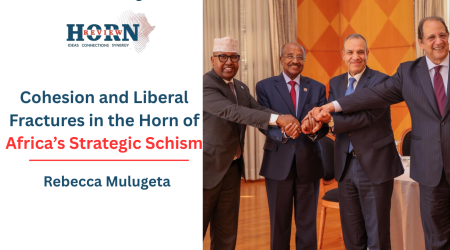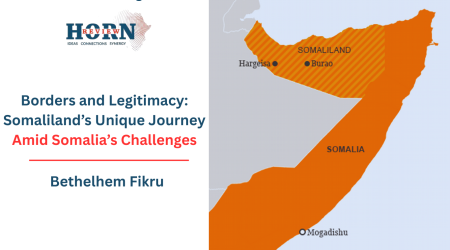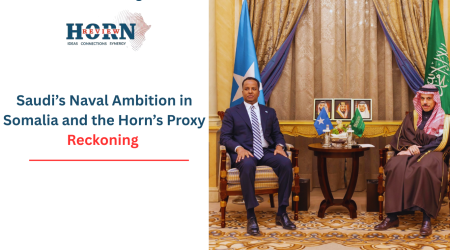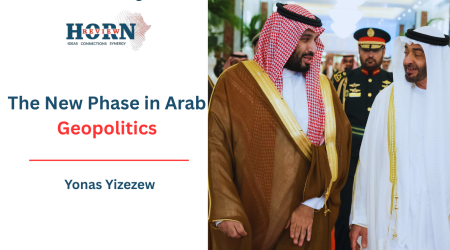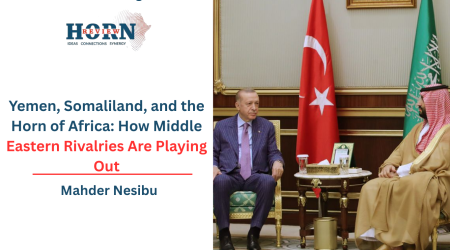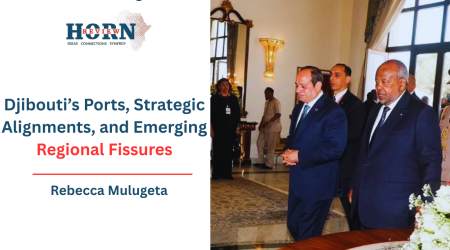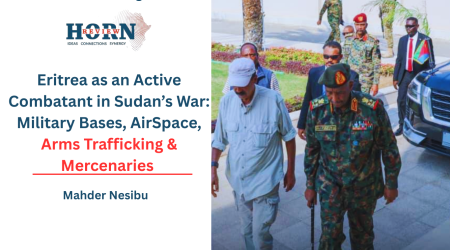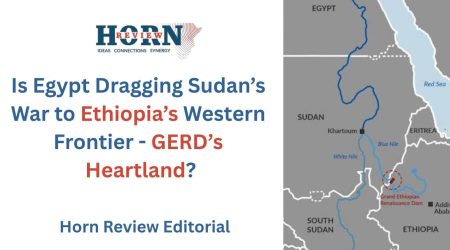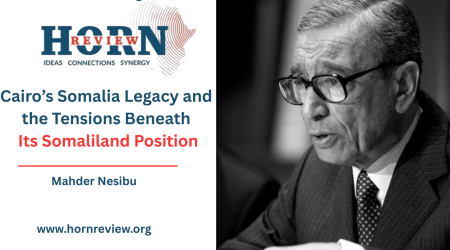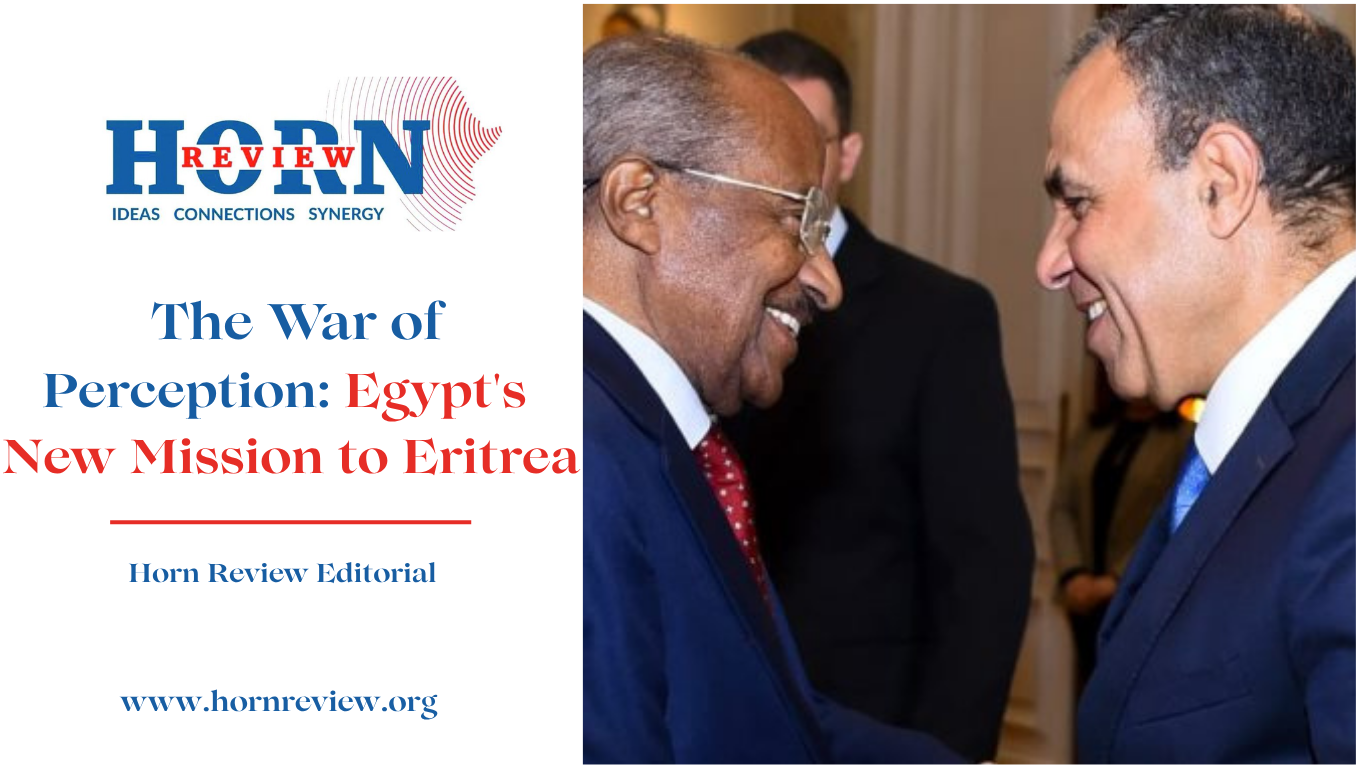
3
Nov
The War of Perception: Egypt’s New Mission to Eritrea
In the Horn of Africa’s evolving strategic landscape, influence is increasingly exercised through perception, narrative, and symbolic posture as much as through proxy or direct confrontation. The recent visit of Eritrean President Isaias Afwerki to Cairo, occurring shortly after Ethiopian Prime Minister Abiy Ahmed’s parliamentary address on Ethiopia’s maritime aspirations, has reanimated the long-standing strategic triad linking Addis Ababa, Asmara, and Cairo. Abiy’s assertion that access to the sea constitutes an “existential” necessity reframed geography as destiny, signaling ambitions that extend beyond economic development into the domain of national identity and state continuity. For Ethiopia, this statement was both pragmatic and philosophical. For Eritrea, whose sovereignty was forged through separation from Ethiopia’s territorial claims, the discourse evokes enduring anxieties over subordination and historical sensitivity.
Egypt, attuned to shifts in the balance of power along the Nile, interprets Ethiopia’s renewed maritime rhetoric through the prism of its hydropolitical interests. The completion of the Grand Ethiopian Renaissance Dam has already altered regional calculations, and a maritime-capable, economically ascendant Ethiopia intensifies these concerns. Within this context, Isaias’s engagement with President Abdel Fattah el-Sisi acquires both strategic and psychological significance. Beyond formal consultation, the meeting functioned as a demonstration of alignment – an implicit message that Ethiopia’s regional ambitions will be closely monitored and contested.
This approach has deep historical roots. Cairo’s strategic engagement with Eritrea dates back to the era of President Gamal Abdel Nasser, whose successors continued a policy of cultivating Eritrean actors to project influence against Ethiopia. Egypt was among the first nations to recognize Eritrea after its independence was formally ratified Through a much debated referendum monitored by the UN under the then Egypt’s Boutros Boutros Ghali’s leadership, opening an embassy in Asmara that same year. Historically, Cairo has sponsored, accommodated, and provided platforms – including radio and other media – for Eritrean networks to propagate narratives favorable to its regional objectives. By fostering Eritrean alignment, Cairo has long sought to influence the Horn’s political discourse while maintaining plausible deniability, shaping perceptions both regionally and internationally. The pattern persists today: Eritrean collaboration with Egypt is both a continuation of historical strategy and a contemporary tool for influence in the Red Sea and Nile corridors.
The broader dynamics suggest that Egyptian-Eritrean coordination extends beyond conventional diplomacy, potentially targeting Ethiopia’s and its leader’s global image. This alignment, both through extensive media narratives and diplomatic signaling, is aimed to challenge the constructive and reciprocal diplomacy Ethiopia has pursued for decades, portraying Addis Ababa’s integrative ambitions as unilateral rather than collaborative. Such perception management targets eroding Ethiopia’s moral and diplomatic authority while reinforcing the perception of Asmara as a victim, and Cairo as a custodians of regional order.
This represents a sophisticated form of influence warfare: indirect, deniable, and perception-driven. Its objective is not to alter physical realities but to manipulate the interpretive frameworks through which those realities are understood. Even absent explicit operational coordination, the strategic logic aligns with established regional methods of narrative management: coordinated media engagement, diaspora networks, and amplification of narratives advantageous to Egyptian and Eritrean positions.
For Eritrea, such alignment offers strategic benefits: procuring regional relevance, signaling partnership with Cairo, and justify its disruptive & provocative posture. Yet it also exposes the subordination of Eritrean narrative autonomy to Egyptian strategic priorities. For Egypt, the advantage is clear: through Eritrea, it extends influence along the Red Sea and maintains plausible deniability while countering Ethiopia’s maritime and developmental ambitions.
Ethiopia’s challenge lies in preserving narrative credibility. Having positioned itself as the architect of cooperative regional order, Addis Ababa must safeguard the integrity of its maritime and developmental discourse against reframing by rival actors. Transparent diplomacy, combined with strategic communication, is essential to defending legitimacy and countering manipulative narratives.
Cairo’s strategy remains precise: shaping discourse while maintaining formal deniability. Hosting Isaias Afwerki shortly after Ethiopia’s maritime statements achieved the psychological effect of containment without material confrontation, demonstrating that influence in the Horn increasingly operates through perception and narrative, not just proxy or direct confrontation.
Ultimately, the Horn of Africa now functions within an information ecosystem in which attribution is blurred, influence is exercised indirectly, and credibility itself is a form of strategic power. Ethiopia’s developmental ambitions, Eritrea’s continued obstruction, and Egypt’s pursuit of hydropolitical primacy converge in a contested narrative space. The recent Cairo engagement confirms that decisive battles in the Horn are increasingly fought in the realm of perception, where influence, legitimacy, and reputation define outcomes as decisively as geography or military assets. The strategy echoes a historical continuum: Cairo has long recognized that shaping narratives and cultivating proxies in Asmara is as consequential as controlling rivers or territory.
By Horn Review Editorial

